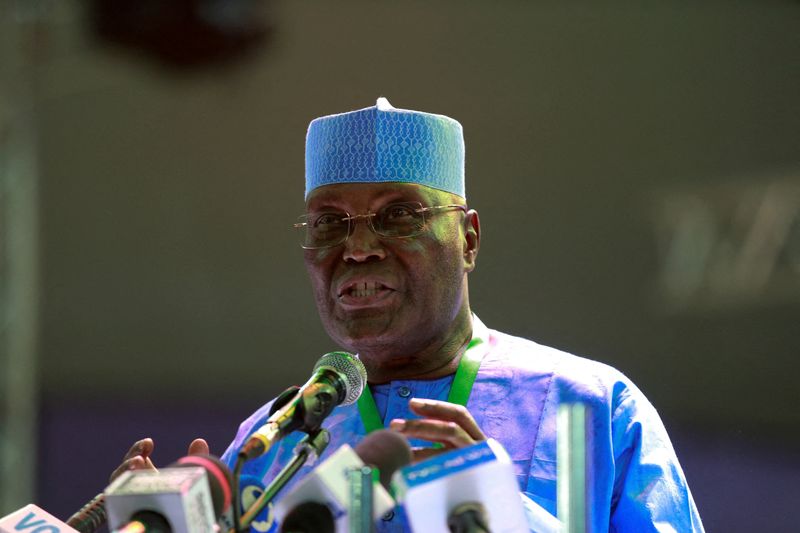YOLA, Nigeria (Reuters) – Nigeria’s presidential hopeful Atiku Abubakar on Saturday said he would bring peace and unity to the country and improve its economic fortunes as he made his final campaign stop.
Economic hardships, including the highest inflation in nearly two decades, unemployment and shortages of cash, and widespread insecurity from a long-running insurgency and secessionist violence are among the top concerns for voters going into the Feb. 25 election.
The 76-year-old candidate from the main opposition People’s Democratic Party is among the top three contenders vying to succeed President Muhammadu Buhari, who steps down after next week’s presidential and parliamentary elections.
Despite Atiku’s national appeal, at least four opinion polls have shown him trailing insurgent third party candidate Peter Obi from the smaller Labour Party and Bola Tinubu of the ruling All Progressives Congress party.
Under the campaign theme “My Covenant with Nigeria”, Atiku has promised greater private sector involvement in the economy to create jobs and develop infrastructure. He wants to privatise the state oil firm NNPC Ltd, create a $10 billion fund for small businesses and start a dialogue with separatist agitators to end violence in southeastern Nigeria.
“We promise to lead by our promises to make sure that we have a united country and we have a peaceful country and we have a buoyant economy,” Atiku told multitudes of supporters at a stadium in his home state of Adamawa, in the northeast of the country.
This is Atiku’s third attempt to lead Africa’s most populous nation and analysts say it could also be the last for the veteran former vice president, who will be 80 in the next election in four years’ time.
(Reporting by Percy Dabang; writing MacDonald Dzirutwe; editing by Clelia Oziel)
